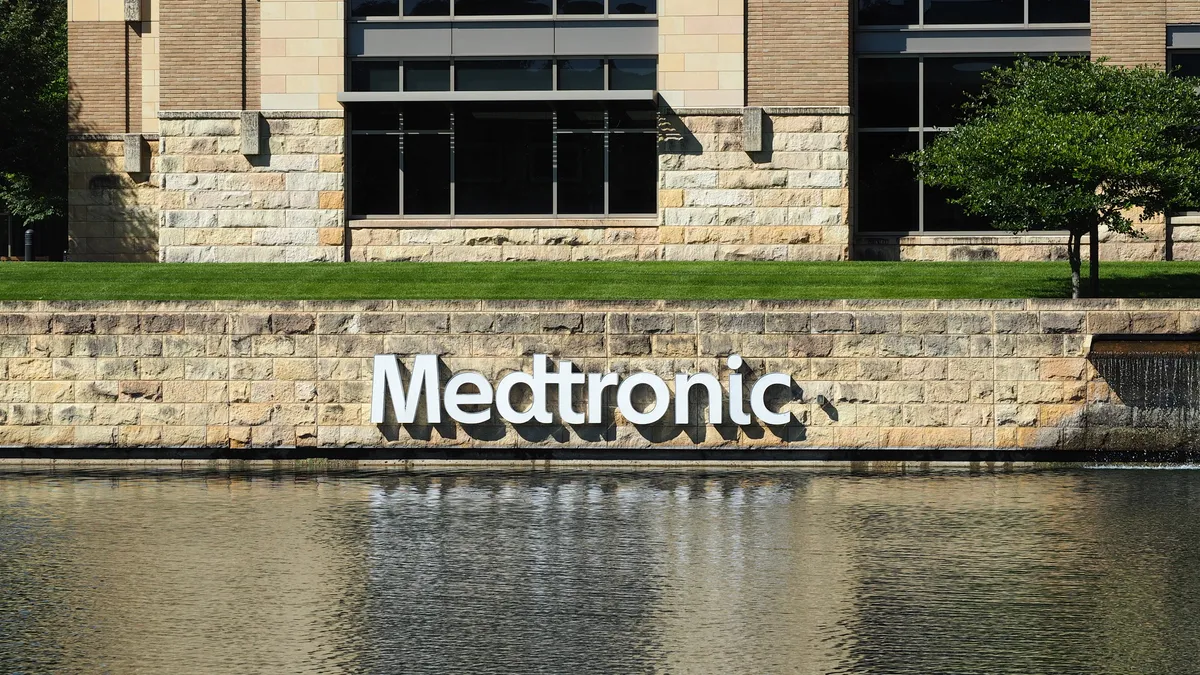UPDATE: FDA announced Thursday a Class I recall for multiple product parts of Medtronic's HeartWare HVAD system, attributing eight injuries and 12 deaths to the device.
The recall was first made public in an FDA database on April 6 and covers six parts of the HeartWare HVAD system.
A total of 855 complaints have been filed for these device issues, according to the FDA.
Medtronic provided a different accounting of the deaths involved in an emailed statement, suggesting one was related to the issue, seven were potentially related and three, they contend, were not related, as of Jan. 7.
The company alerted customers of the issue in February and provided them with patient management recommendations, according to the statement from a Medtronic spokesperson. The company is in the process of redesigning the parts.
April's recall follows a separate Class I recall for the HeartWare HVAD system on March 1, where 19 serious injuries and two patient deaths were linked to the device.
The HeartWare HVAD system has had four Class I recalls since 2018.
Medtronic has had four total Class I recalls in 2021, including the two for HeartWare HVAD. The FDA also issued Class I recalls for the Valiant Navion thoracic stent graft system and a list of implantable cardioverter defibrillators and cardiac resynchronization therapy devices earlier in April.
Dive Brief:
-
FDA has categorized another set of products recalled related to Medtronic’s HeartWare HVAD ventricular assist device as a Class I event after receiving reports of deaths linked to the problem.
-
The latest action covers 106,365 HeartWare HVAD controllers, adapters, cables, monitors and batteries that are in commerce in the U.S. All relate to the same issue.
- FDA has now categorized 13 HeartWare products recalled as Class I events in the past 13 months amid a stream of fault reports that have been implicated in the deaths of patients.
Dive Insight:
Medtronic gave the same reason for the six most recent Class I products recalled: “There is the potential for the Controller power cables (AC Adapter, DC Adapter, and Battery cables), HVAD Alarm Adapter, and HVAD Monitor data cables to cause damage to the HVAD Controller ports when inserting the cables into the Controller ports, due to wear from misalignment of the cables to the port.”
The FDA notice contains little further information but other regulators, such as the Danish Medicines Agency, have published the letter Medtronic sent to healthcare professionals to alert them to the problems.
In the letter, Medtronic warns that damage caused by misalignment of cables and ports can make it impossible to lock connectors into the HVAD controller. If that happens, power could be interrupted or disconnected, causing the HVAD pump to stop or cease communicating with the monitor. The controller may need exchanging to restore connections in that scenario.
From March 2017 to early January 2021, Medtronic received 855 complaints about the issue on its second-generation controller. Some of the complaints described deaths linked to the problem.
“Medtronic has identified one death related to the inability to reconnect power cables to the controller due to this issue, seven deaths related to complications from a controller exchange where bent pins were observed on a controller port [and] three deaths unrelated to this issue, but where bent pins were observed on a controller data port,” the company wrote in its letter.
In addition, Medtronic received six reports of “harms ranging from minor cardiac arrhythmias and anxiety to hospitalization and cardiac arrest” in cases where it was necessary to exchange the HVAD controller.
Medtronic told healthcare professionals it is redesigning the cables to reduce the risk of the issue. In the meantime, Medtronic is asking healthcare professionals to check for damaged connector plugs and cables during clinic visits. Patients are advised to inspect their devices once a week.
Medtronic's HeartWare HVAD system came as part of its $1.1 billion acquisition of HeartWare International in 2016. At the time of the acquisition, Medtronic estimated that the global VAD market was about $800 million in size, with the potential to grow at high-single- to low-double-digits beyond 2017.












